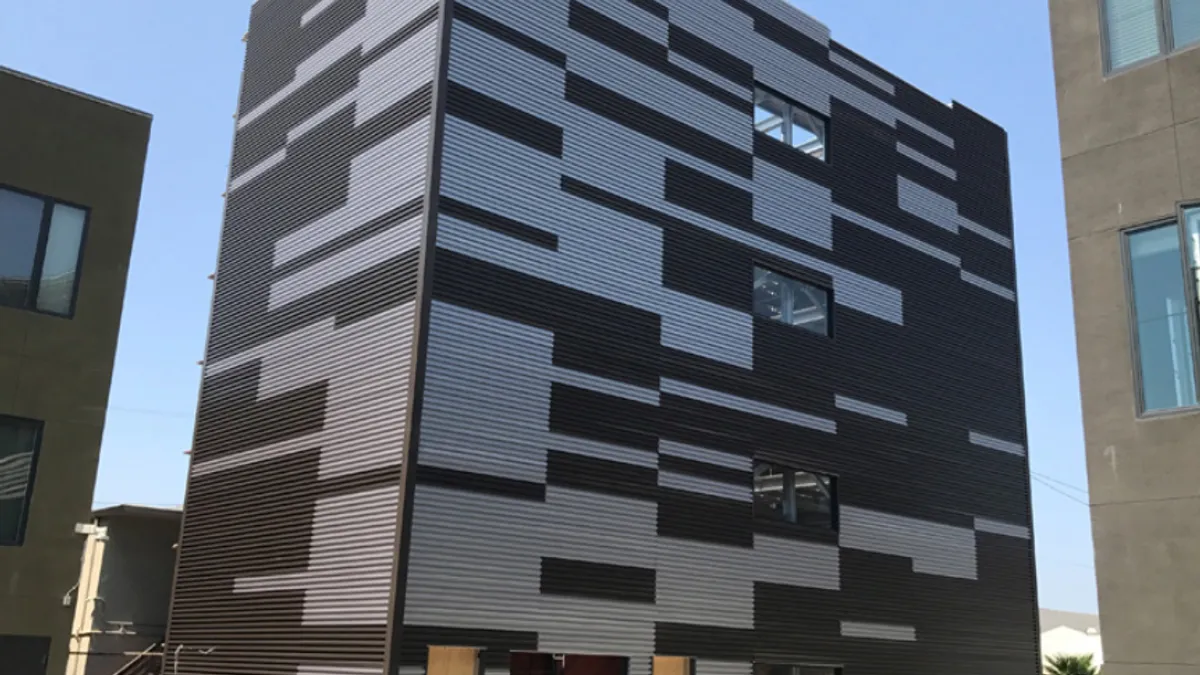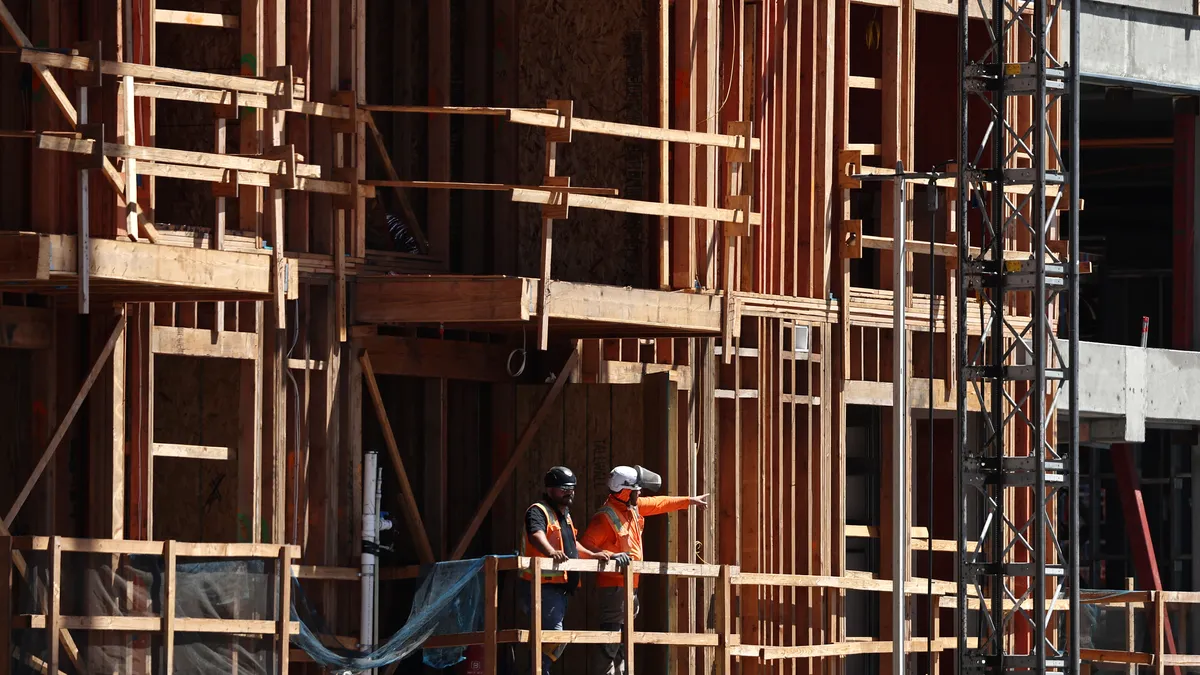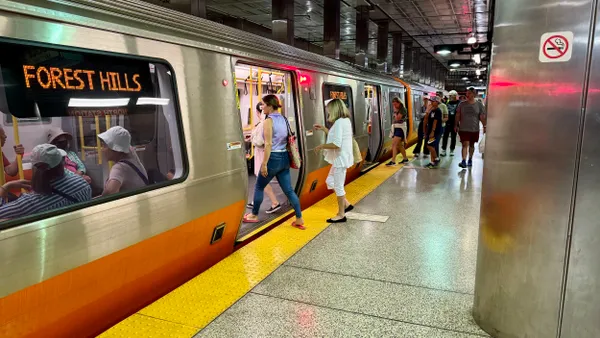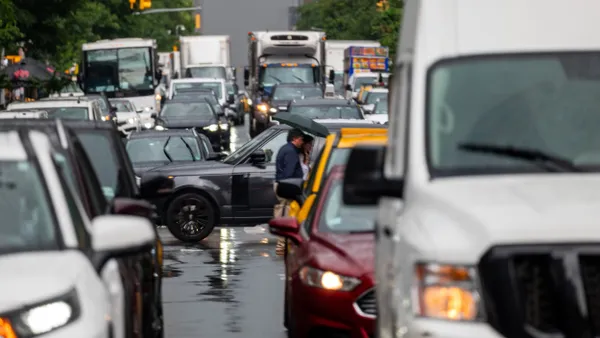Dive Brief:
- The Hive Parking Structure, a fully-automated parking garage, opened Monday in Oakland, CA. Built on a 1,600-square-foot footprint, the structure is 55 feet high and has space for 39 cars.
- Drivers arrive at the garage and park in a receiving area before pressing a button to indicate that everyone is out of the car. The garage then takes the unoccupied vehicle on a series of automatic transporters into the structure to find a space. To get the car back, drivers must scan their ticket at an electronic machine, then wait for it to automatically return to them.
- Oakland-based CityLift Parking and developer Signature Development Group partnered on the garage, which officials said used 69% less construction material per parking space than regular garages. In a statement, Signature Development Group president Mike Ghielmetti said the garage is “cost effective and environmentally sustainable.”
Dive Insight:
While this may be the first fully automated parking garage in Northern California, it is not the first in the nation nor in the world, although this latest opening represents the latest expansion of the technology.
Already, similar structures exist in parts of New Jersey and in West Hollywood, CA, where the city saved over $1 million by installing an autonomous garage that can hold up to three times as many cars as a regular garage, according to Wired.
In an interview with Wired, Unitronics CEO Yair Goldberg, whose company installed the West Hollywood garage, said the structure reduces noise and emissions as car engines do not run, and the fact that people do not need to get in and out of the cars in tight spaces means they can pack more vehicles in. “What this does, it eliminates all the turning radiuses, all the ramps, all the clearances for people to be able to walk here or open up their doors,” Goldberg said.
Building automated parking garages saves both space and money, as they are often cheaper to build and can hold two or three times more cars than normal garages. In a statement, CityLift Parking CEO Scott Gable said the lack of available land for such structures means companies must think differently. "As land in America's urban core becomes scarce, automated parking solutions are the most cost and space effective way for developers and public agencies to meet parking requirements within increasingly smaller footprints," he said.











